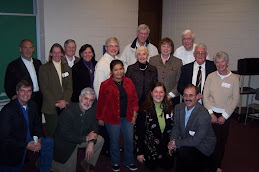The annual Fall General Assembly of the United States Conference of Catholic Bishops (USCCB) will be in Baltimore mid-November. In his inimitable style, Peter Steinfels suggests that they

address (one of) the elephants in the living-room – the decline in Church membership over the past few decades. Peter cites the Pew Forum survey that reports that one in every three people raised Catholic have left the Church. Thomas Reese, SJ, former editor of America, recently described this loss of on-third “a disaster”. He added, “You wonder if the bishops have noticed.”
Peter continues that at the coming bishops conference many things will be covered, “but not these devastating losses.” These numbers are not just numbers. “They are our siblings, our cousins, nieces and nephews, our friends, neighbors, classmates, and students, our children and grandchildren, even in some cases, our parents.”
But rather than face the problems, bishops and their “official” media and diocesan newspapers become cheerleaders for some bright spots.
I doubt whether any diocese is without some energetic, sensitive, and creative initiatives to improve pastoral practice, liturgy, catechetics, preaching, faith formation, financial support, social witness, and all the other things that could reverse the current decline. I continue to hear of successful programs, learn of valuable research, meet inspiring individuals, and see ads for attractive guides and educational materials for clergy and lay leaders alike. Yet somehow all these initiatives seem too scattered, too underfunded, too dependent on an always limited number of exceptional talents to coalesce into a force equal to the forces of dissolution.
Do we expect the issue to be solved quickly and easily? No, but...
What matters is merely some kind of acknowledgement from the hierarchy, or even
leading individuals within the hierarchy, of the seriousness of the situation. What matters is a sign of determination to address these losses honestly and openly, to absorb the existing data, to gather more if necessary, and to entertain and evaluate a wide range of views about causes and remedies. Is it possible some bishop might mention this at their November meeting?





